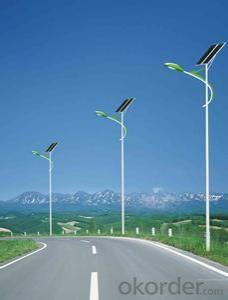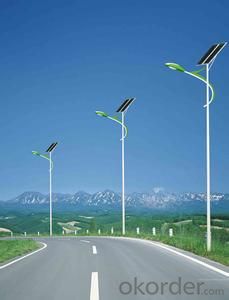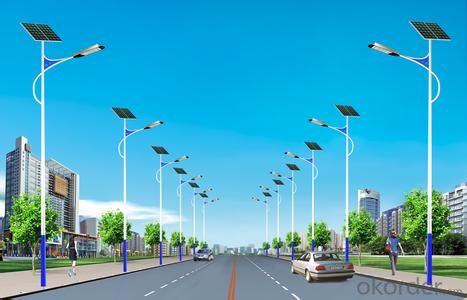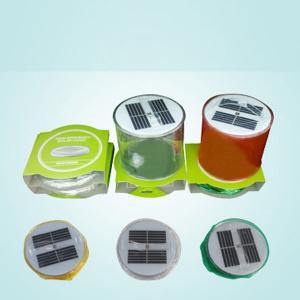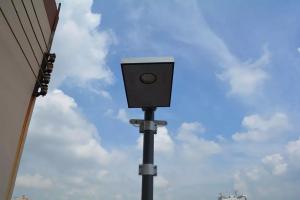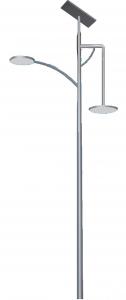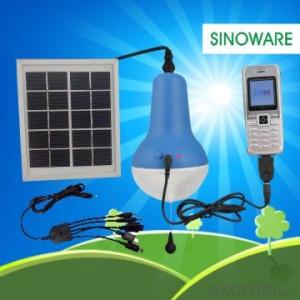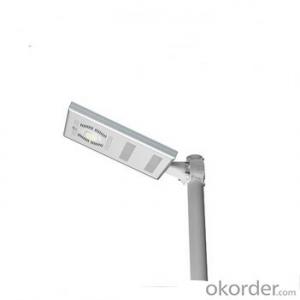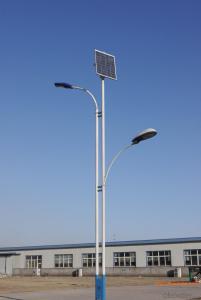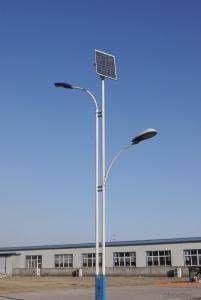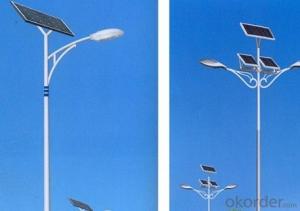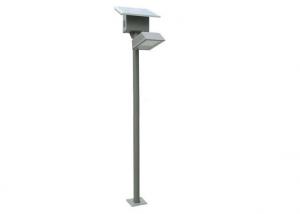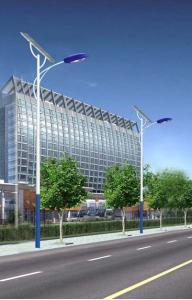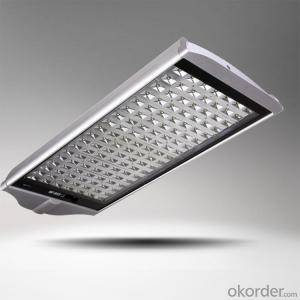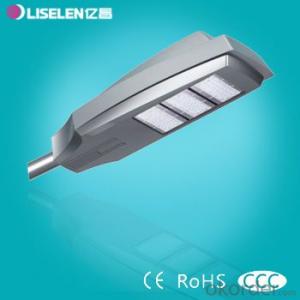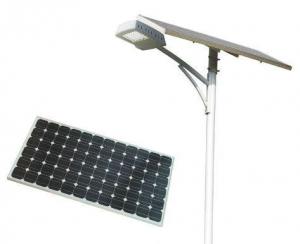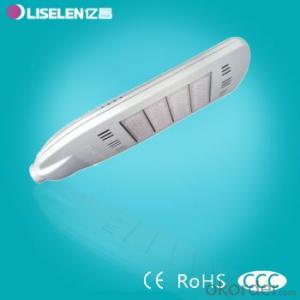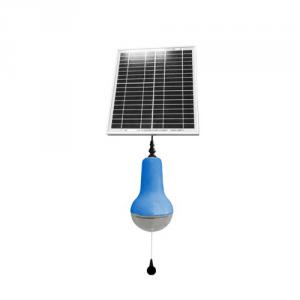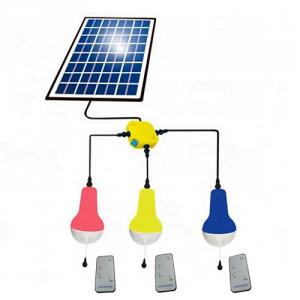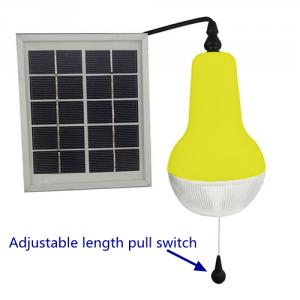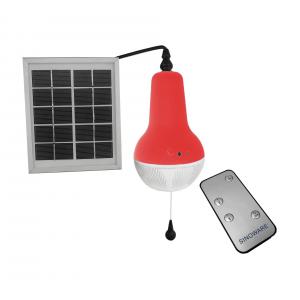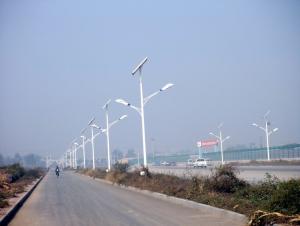T Post Solar Street/Road Lights
- Loading Port:
- China Main Port
- Payment Terms:
- TT OR LC
- Min Order Qty:
- -
- Supply Capability:
- -
OKorder Service Pledge
OKorder Financial Service
You Might Also Like
Specifications
1.Beautiful modular design
2.CREE chips 85LM/W
3.Beam angle 10-20 degree adjustable
4.Easy maintenance
5.LED 3 year warranty
Advantages:
brand new model 20-90W LED street light. Features are:
1. 20W, 30W, 40W, ...90W available (with Epistar or CREE LED).
2. 20-30W beam angle: lateral 120 degree, vertical 60 degree;
3. 40-90W beam angle: lateral 140 degree + 20 degree adjustable = 160 degree, vertical 60 degree;
4. Interpole distance can be 45-55M;
5. 20W per module by Epistar LED (85lm/W, 3 year warranty), 30W per module by CREE LED;
6. With CREE LED, 85lm/W or 95lm/W, with the best MEANWELL driver, 5 year warranty;
7. Pole socket 0 - 115 degree adjustable, so enable both lateral and vertical installation
8. Back cover can be easily opened, simple maintenance, lower cost.
9. Each LED module has specially designed lens, making luminance concentracted in a rectangular area, get much higher
LM than ordinary lens.
10. Heat sink also uniquely designed, <55°C degree, getting longer working life.
11. Built-in constant voltage driver in each LED module, making it works much stable and longer time.
We are also developing wireless ZIGBEE remote control system, that can use your conputer to regulate the brightness of
lamp. With light sensor, it can be automatically On/Off.
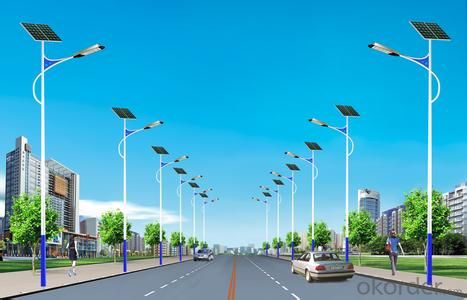
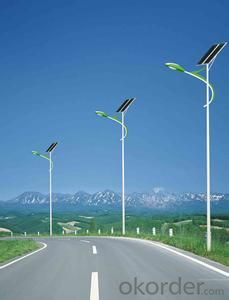
- Q: Can solar lights be used in parking lots?
- Parking lots can indeed utilize solar lights. These lights offer a sustainable and viable solution for illuminating parking areas. By harnessing the abundant and renewable energy of the sun, solar lights operate efficiently. They feature photovoltaic panels that absorb sunlight during the day, converting it into electrical energy stored within rechargeable batteries. As dusk arrives, the lights automatically activate, providing consistent illumination throughout the night. This reliable lighting solution effectively ensures safety and visibility for both vehicles and pedestrians in parking lots. Moreover, the utilization of solar lights in these areas leads to significant reductions in energy costs and carbon emissions when compared to traditional grid-powered lights. Additionally, they require minimal maintenance and are easily installed, making them a practical and environmentally friendly choice for parking lot lighting.
- Q: Can solar lights be used for outdoor restaurants?
- Yes, solar lights can definitely be used for outdoor restaurants. They are an eco-friendly and cost-effective lighting solution that can illuminate outdoor dining areas, pathways, and seating areas. Solar lights are easy to install, require minimal maintenance, and can provide sufficient lighting throughout the night. They also create a pleasant ambiance and enhance the overall dining experience for customers.
- Q: Are solar lights suitable for use in off-grid cabins?
- Indeed, solar lights are a suitable choice for lighting off-grid cabins. Typically situated in remote areas with limited or no access to the power grid, off-grid cabins can greatly benefit from solar lighting options. Solar lights, powered by sunlight, serve as an excellent alternative to traditional electrical lighting. Comprising photovoltaic panels, solar lights convert sunlight into electricity, which is stored in batteries for future use. This means that the solar panels absorb and convert sunlight into usable energy during the day, enabling the lights to be powered at night. This process is both eco-friendly and sustainable, making it a perfect fit for off-grid cabins. The installation of solar lights in off-grid cabins eliminates the need for expensive electrical installations and reduces reliance on fossil fuels or generators. Moreover, solar lights require minimal maintenance and do not necessitate any complicated wiring or electrical connections, making them effortless to install and upkeep. Furthermore, a wide range of solar light types and designs are available, catering to various indoor and outdoor lighting requirements. Another advantage of solar lights is their portability. This means that they can be easily relocated and positioned wherever necessary within the off-grid cabin. This flexibility allows for optimal lighting arrangements based on the cabin's layout and the occupants' preferences. Overall, solar lights offer a practical and efficient lighting solution for off-grid cabins. They provide sustainable and reliable lighting without the need for grid access or conventional power sources. By harnessing the power of the sun, solar lights offer an environmentally friendly and cost-effective lighting solution for off-grid living.
- Q: Can solar lights be used for bus shelters or public transportation stops?
- Certainly, bus shelters or public transportation stops can indeed utilize solar lights. In reality, these lights are an exceptional choice for such areas due to the multitude of advantages they offer. Solar lights operate using sunlight as a power source, eliminating the need for electrical wiring or connection to the power grid. Consequently, the installation process is significantly simplified and cost-effective when compared to conventional lighting alternatives. In addition, solar lights are environmentally friendly since they do not rely on fossil fuels or contribute to greenhouse gas emissions. They capture solar energy during the day and store it in built-in batteries, which then power the lights at night. This renewable energy source not only aids in reducing carbon footprint but also decreases electricity expenses for municipalities and transportation authorities. Furthermore, solar lights guarantee reliable illumination throughout the night, ensuring the safety and convenience of commuters waiting at bus shelters or transportation stops. By equipping them with motion sensors, the lights can automatically brighten in the presence of individuals and dim when no one is around, thereby optimizing energy usage. Besides their practicality, solar lights also provide flexibility in terms of design and placement. They are available in diverse styles, sizes, and colors, enabling customization to match the aesthetics of the surroundings. Moreover, their portability makes them easily movable or installable in areas with limited access to electricity. Ultimately, solar lights present a feasible and sustainable lighting solution for bus shelters and public transportation stops. They supply reliable, cost-effective, and environmentally friendly illumination, enhancing the safety and convenience for commuters while minimizing the burden on municipal resources.
- Q: Can solar lights be used for camping or outdoor activities?
- Yes, solar lights can certainly be used for camping or outdoor activities. They are a convenient and eco-friendly lighting option that can be recharged using sunlight during the day and provide illumination at night. Solar lights are portable, easy to set up, and can be used to light up tents, campsites, or outdoor areas. They eliminate the need for batteries or fuel-powered lamps, making them a sustainable choice for outdoor adventures.
- Q: How do you clean solar lights?
- To clean solar lights, start by turning off the power and removing the solar panel if possible. Use a soft cloth or brush to gently remove any dirt or debris from the surface. For tougher stains, mix a solution of mild soap and warm water and gently scrub the affected areas. Rinse with clean water and allow the lights to dry completely before reassembling and turning the power back on.
- Q: Are solar lights weatherproof?
- Yes, solar lights are typically weatherproof as they are designed to withstand various weather conditions such as rain, snow, and extreme temperatures.
- Q: Are solar lights suitable for use in archaeological excavations?
- Solar lights are a viable option for archaeological excavations. They are powered by solar energy, eliminating the need for electricity or a power source. This is particularly advantageous in remote excavation sites with limited access to electricity. Archaeological excavations often take place in dimly lit environments, especially underground or enclosed areas. Solar lights offer a reliable and consistent source of illumination, enabling archaeologists to efficiently perform their work without relying on traditional lighting methods like generators or battery-powered lights. Additionally, solar lights are portable and easy to set up, making them perfect for excavations that require frequent relocation or movement of lighting equipment. Moreover, they are cost-effective in the long term as they don't require ongoing expenses for fuel or batteries. Nevertheless, it's crucial to consider the specific needs of the excavation site and the nature of the archaeological work being conducted. In certain cases, solar lights may not provide adequate brightness or coverage, particularly in large excavation areas or during nighttime operations. In such situations, a combination of solar lights and other lighting solutions may be necessary. In conclusion, solar lights present a practical and sustainable option for archaeological excavations, offering sufficient lighting without the need for electricity or constant maintenance.
- Q: Can solar lights be used for flagpole lighting?
- Yes, solar lights can be used for flagpole lighting. Solar-powered flagpole lights are designed specifically for this purpose and are an eco-friendly and cost-effective option for illuminating flags at night. They harness sunlight during the day to charge their batteries and automatically turn on at dusk, providing a bright and steady light for flag display.
- Q: Can solar lights be used in historical sites?
- Yes, solar lights can be used in historical sites. They provide a sustainable and environmentally friendly lighting solution without the need for electricity connections, which is often desirable in preserving the authenticity and integrity of historical sites. Additionally, solar lights can be easily installed and adjusted to suit the specific lighting needs of each historical site, while minimizing any potential damage or alteration to the site.
Send your message to us
T Post Solar Street/Road Lights
- Loading Port:
- China Main Port
- Payment Terms:
- TT OR LC
- Min Order Qty:
- -
- Supply Capability:
- -
OKorder Service Pledge
OKorder Financial Service
Similar products
Hot products
Hot Searches
Related keywords
